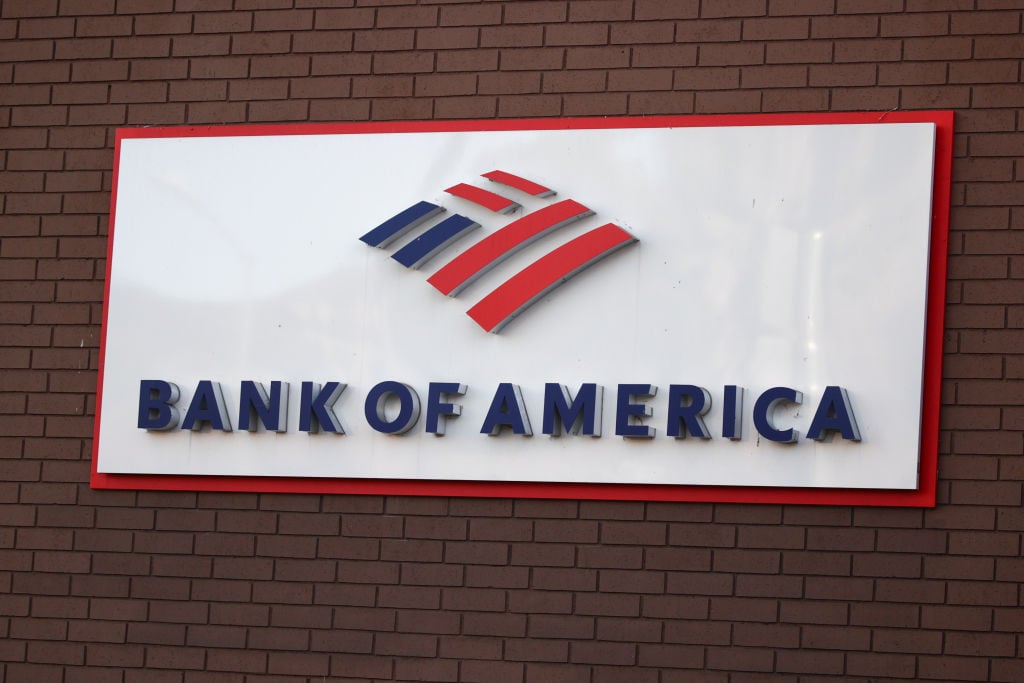Join the Fool as we assess blame for this financial meltdown -- March Madness bracket style! Below is one of four second-round matchups you can vote on … enjoy!
The case for Wall Street, by Morgan Housel
Since Wall Streeters were the ones using the insane formulas cooked up by the math geeks, this is a tough battle. To avoid confusion, let me be clear: I'm strictly talking about Wall Street executives’ over-reliance on arcane formulas, not the geeks who wrote them in the first place.
There's nothing inherently wrong with using formulas and models in investing. A model is simply a calculated guess at the odds of something happening, the value something should be worth, the odds the SEC will crack your Ponzi scheme, whatever. Even the most non-geeked-out investors use them all the time.
For example, when Berkshire Hathaway (NYSE:BRK-A) bought PetroChina (NYSE:PTR) a few years back, Warren Buffett told investors:
[PetroChina] was selling for one-fourth of the price of [ExxonMobil (NYSE:XOM)], but was making profits equal to 80% of Exxon. I was reading the annual report one day and in it I saw a message from the Chairman saying that the company would pay out 45% of its profits as dividends. This was much more than any company like this, and I liked the reserves.
Easy enough. This company is currently priced at X, which is a discrepancy to a competitor's valuation of Y, which means it should be worth Z. That's a model if I've ever seen one. And it made Buffett a bloody fortune.
Where banks like Citigroup (NYSE:C) and Bank of America (NYSE:BAC) went horribly off course was in taking the word of financial models as gospel and betting the entire farm with obscene leverage. Buffett's model made sense, but even if he was wrong, hell wouldn't haven't broken loose. Banks? Not so much. When you leverage yourself to the moon, there's no room for error. The entire fate of the company was based on faith in someone else's Excel skills.
That's what ultimately took banks down. The issue wasn’t that their formulas were wrong (even though they were), it was that management acted like it was completely outside the realm of possibility that they could be wrong in the first place. This isn't a math error; it's judgment error.
So don't blame the geeks. Blame the management who took them seriously.
The case for geeks bearing formulas, by Alex Dumortier
It would appear that I’ve got an uphill battle trying to convince you that “geeks bearing formulas” have a greater responsibility in this mess than Wall Street itself. “Geeks bearing formulas” are the Wall Street quantitative analysts who modeled the complex securities that have turned to toxic sludge, gumming up the financial system.
Isn’t the verdict already in on this?
Surely by now, everyone knows that Wall Street is to blame. Furthermore, these geeks were a part of the Wall Street machine, so how can you go wrong blaming Wall Street, blanket-fashion?
Actually, you can go wrong that way. Voting for “Wall Street” is the sloppy thinker’s choice, and if you’re reading this, I give you a little bit more credit than that. After all, Fool readers were savvy enough to give the geeks the nod over the former CEOs of WaMu and Countrywide – poster boys for the current crisis – in the first round of this tournament.
Wall Street or part of Wall Street?
“Wall Street” is a broad term that covers numerous activities, many of which had little or nothing to do with the credit bubble. Take the bankers who work in mergers and acquisitions, for example. Did they create the bubble? No. How about those who take companies public and arrange secondary stock offerings? No. What about the traders and salespeople who transact in stocks, currencies and commodities on behalf of their clients? NO!
I won’t deny that the activity that is at the root of this crisis is performed by investment banks (or was -- the business is virtually moribund at this time), but let’s get our culprits straight instead of tarring everyone with the same brush. That activity is securitization, the process by which mortgages, auto loans, and other types of consumer debt are packaged together, then sliced and diced and sold on to investors.
A cabal of alchemists
There is nothing wrong with securitization per se: It’s an important function that supports mortgage borrowing and consumer spending (just ask Ford (NYSE:F) and General Motors (NYSE:GM)). The problem is that, in the run-up to this crisis, a cabal of investment-bank alchemists were able to transform risky subprime loans into triple-A rated securities, which could then be sold on to investors who were hungry for a little extra yield.
Listen to Warren
Who were these alchemists, and how did they perform such a feat? They are none other than the “geeks bearing formulas.” As Warren Buffett wrote in his most recent Berkshire Hathaway Shareholder’s Letter:
“Indeed, the stupefying losses in mortgage-related securities came in large part because of flawed, history-based models used by salesmen, rating agencies and investors… Constructed by a nerdy-sounding priesthood using esoteric terms such as beta, gamma, sigma and the like, these models tend to look impressive. Too often, though, investors forget to examine the assumptions behind the symbols. Our advice: Beware of geeks bearing formulas.” [Emphasis mine.]
Don’t take the lazy option. Finger the right culprit and vote for the geeks bearing formulas.
Vote now!
Now it's your turn. Who do you think is more responsible for the mortgage mess: the spreadsheet wizards who gave banks the tools to wreak havoc on the world's financial system, or the top-floor executives who thought they were flawless? Make your pick below.
Check out the Fool’s entire 2009 March Madness bracket here.








